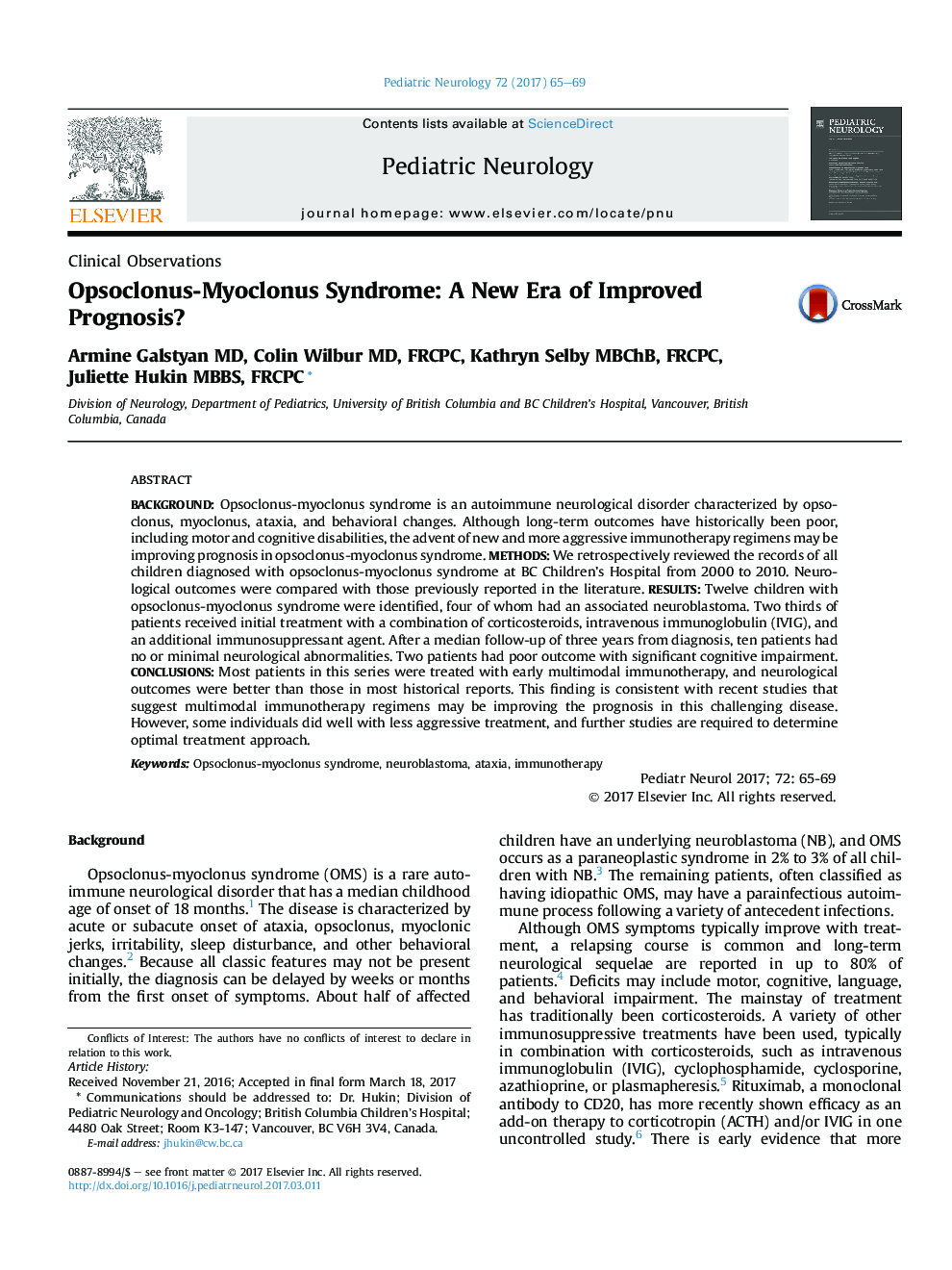| Article ID | Journal | Published Year | Pages | File Type |
|---|---|---|---|---|
| 5633098 | Pediatric Neurology | 2017 | 5 Pages |
BackgroundOpsoclonus-myoclonus syndrome is an autoimmune neurological disorder characterized by opsoclonus, myoclonus, ataxia, and behavioral changes. Although long-term outcomes have historically been poor, including motor and cognitive disabilities, the advent of new and more aggressive immunotherapy regimens may be improving prognosis in opsoclonus-myoclonus syndrome.MethodsWe retrospectively reviewed the records of all children diagnosed with opsoclonus-myoclonus syndrome at BC Children's Hospital from 2000 to 2010. Neurological outcomes were compared with those previously reported in the literature.ResultsTwelve children with opsoclonus-myoclonus syndrome were identified, four of whom had an associated neuroblastoma. Two thirds of patients received initial treatment with a combination of corticosteroids, intravenous immunoglobulin (IVIG), and an additional immunosuppressant agent. After a median follow-up of three years from diagnosis, ten patients had no or minimal neurological abnormalities. Two patients had poor outcome with significant cognitive impairment.ConclusionsMost patients in this series were treated with early multimodal immunotherapy, and neurological outcomes were better than those in most historical reports. This finding is consistent with recent studies that suggest multimodal immunotherapy regimens may be improving the prognosis in this challenging disease. However, some individuals did well with less aggressive treatment, and further studies are required to determine optimal treatment approach.
